For 2021, in alphabetical order by last name, here are 13 amazing stars in networking and communications that you should know!
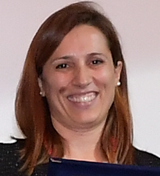 | Angela Sara Cacciapuoti Associate Professor at the Department of Electrical Engineering and Information Technology (DIETI), University of Naples Federico II, Italy Main Research Interests: Quantum Internet, Quantum Communications and Networks, Quantum Information Processing. Angela Sara Cacciapuoti is currently Associate Professor at the University of Naples Federico II, Italy, where she is co-leading the Quantum Internet research group. Her research seeks to pave the ground for a better understanding of the challenges and technical leaps necessary to achieve the ultimate vision of a Quantum Internet. She has been among the first researchers in the communications engineering community working on quantum communications and networks. Since July 2018, she held the national habilitation as "Full Professor" in Telecommunications Engineering. Her work has appeared in first tier IEEE journals and she has received different awards. Currently, Angela Sara serves as Area Editor for IEEE Communications Letters, and as Editor/Associate Editor for the journals: IEEE Trans. on Communications, IEEE Trans. on Wireless Communications, IEEE Trans. on Quantum Engineering, IEEE Network and IEEE Open Journal of Communications Society. In 2016 she has been an appointed member of the IEEE ComSoc Young Professionals Standing Committee. From 2017 to 2018, she has been the Award Co-Chair of the N2Women Board. From 2017 to 2020, she has been the Treasurer of the IEEE Women in Engineering (WIE) Affinity Group of the IEEE Italy Section. In 2018, she has been appointed as Publicity Chair of the IEEE ComSoc Women in Communications Engineering (WICE) Standing Committee. From 2020 to 2021, she was the Vice-Chair of WICE. “Angela Sara Cacciapuoti is a professor at University of Naples Federico II, Italy. Her work regularly appeared in first tier IEEE ComSoc transactions and journals. She has received different awards, including the elevation to the grade of IEEE Senior Member in 2016, most downloaded article and most cited article awards, and outstanding young faculty/researcher fellowships for conducting research abroad. Her distinguished contributions go beyond her leading role in her research field. Sara is a meticulous and precise leader and an ever-present, attentive and inclusive tutor. As a woman engineer she has been involved for years in several initiatives aimed at promote the visibility and roles of women in scientific field. She has a remarkable capacity of recognizing talents and is always able to provide a venue for their growth. This makes her a mentor and a role model who supports and guides both personal and professional growth of whoever surrounds her.” - Jessica Illiano, PhD Student, Department of Electrical Engineering and Information Technology, Università degli Studi di Napoli Federico II, Italy |
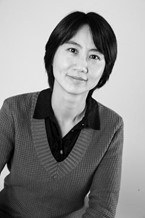 | Lin Cai Associate Professor at Illinois Institute of Technology Main research interests: wireless networks, massive IoT, reinforcement learning. Lin Cai received the M. A. Sc. and Ph.D. degrees in Electrical and Computer Engineering from the University of Waterloo, Waterloo, Canada, in 2005 and 2010, respectively. She is an Associate Professor with the Department of Electrical and Computer Engineering, Illinois Institute of Technology, Chicago, Illinois, USA. Her research interests include green radio communication networks, radio resource management, massive Internet of Things, and multi-agent reinforcement learning. She received a Best Paper Award from the IEEE Globecom 2011, an NSF Career Award in 2016, and the IIT Sigma Xi Research Award in the Junior Faculty Division in 2019. She serves on the Executive Editorial Committee of IEEE Transaction on Wireless Communications. She is an Associate Editor of IEEE Transaction on Vehicular Technology, and a technical program co-chair and member for several IEEE conferences. “Prof. Cai has made many fundamental and well recognized contributions to the wireless communication and networking field, especially in distributed radio resource allocation, ultra-high density wireless networking, sustainable IoT networks with energy harvesting, and reinforcement learning based intelligent network resource management for next generation 6G communication networks. Her exceptional contributions are evidenced by her strong publication records. Prof. Cai is also an excellent advisor in motivating and supporting students, particularly female and minority students, in pursuit of careers in wireless communication and networking area. She mentored many female students and junior researchers and let the research team to achieve a high level of excellence. Her first PhD student is a female student, who joined Qualcomm as a senior research engineer after graduation. She has also actively involved in mentoring master students in various collaborative research projects.“ - Jafar Saniie, Department Chair and Filmer Endowed Chair Professor, Department of Electrical and Computer Engineering, Illinois Institute of Technology, USA |
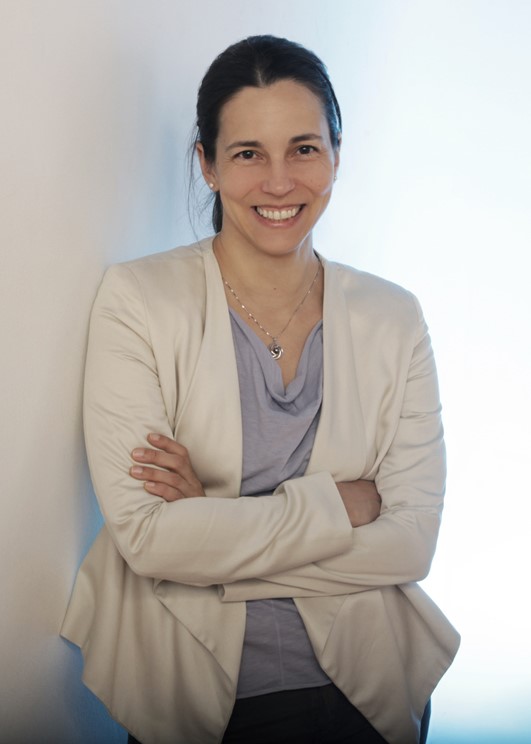 | Anna Förster Professor at the University of Bremen, Germany. Anna Förster obtained her MSc degree in computer science and aerospace engineering from the Free University of Berlin, Germany, in 2004 and her PhD degree in self-organising sensor networks from the University of Lugano, Switzerland, in 2009. She also worked as a junior business consultant for McKinsey&Company, Berlin, between 2004 and 2005. From 2010 to 2014, she was a researcher and lecturer at SUPSI (the University of Applied Sciences of Southern Switzerland). Since 2015, she leads the Sustainable Communication Networks group at the University of Bremen. Her main research interests lie in self-organising and autonomous sensor, opportunistic networks and underground sensor networks. She applies various artificial intelligence techniques, like machine learning and swarm intelligence, to various aspects of wireless communication protocols and applications. One important aspect of her research are practical applications, which contribute to the global achievement of the Sustainable Development Goals. Such applications include decision agriculture, environmental monitoring, safety monitoring, health applications, and many more. Furthermore, she is very interested in usability of internet of things applications to increase their impact and usefulness. “Prof. Dr Anna Förster has a dynamic career in Sustainable Communication Networks. Her contributions towards a sustainable future for computer networking is priceless. Her current research interests include wireless networks, cyber-physical systems and networks, the internet of things, opportunistic networks and computing, massively distributed clouds, participatory sensing, wireless underground sensor networks, and smart grids. Furthermore, she explores how machine learning techniques can be applied across domains. Most importantly, she inspires her students and meets each of her postgraduate students weekly for 1 hour to discuss progress, challenges and next steps. She moulds students, and to many of her students, she is a mother figure, and he pieces of advice are unparallel. She currently supervises more than 10 PhD students from across the world and even goes the extra mile to inspire them and support them beyond academia's confines. She also serves selflessly as editor, reviewer and programme member in many conferences yearly.” - Gibson Kimutai, PhD Candidate, ACEIoT, University of Rwanda, Rwanda |
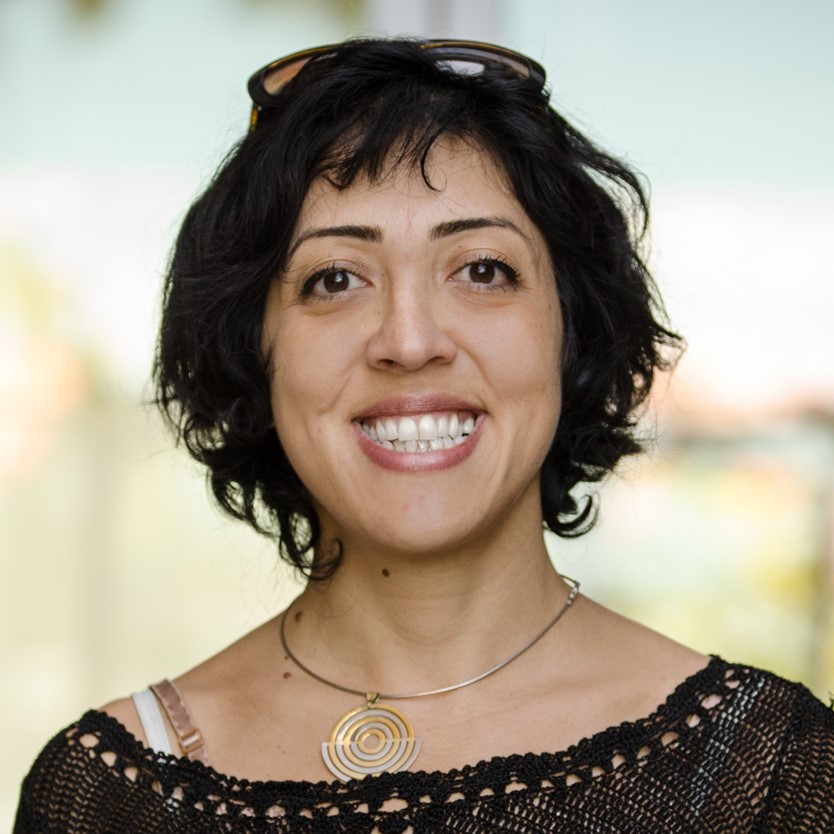 | Tara Javidi University of California, San Diego, USA Main research interests - stochastic design and control of sensing, communication, information processing, and learning in modern engineered systems. Dr. Javidi is a professor of electrical and computer engineering at University of California, San Diego. She received her MS and PhD degrees in Electrical Engineering and Computer Science as well as her MS in Applied Mathematics from the University of Michigan, Ann Arbor. Before joining UCSD, she was on the faculty of Electrical Engineering Department at the University of Washington, Seattle; In 2013-2014, she spent her sabbatical at Stanford University as a visiting faculty. Her area of research is at the intersection of stochastic control, information theory, and data science with notable contributions to the theory of information acquisition and active learning. At the University of California, San Diego, Tara is a founding co-director of the Center for Machine-Intelligence, Computing and Security, the principal investigator of Detect Drone Project as well as a faculty member of the member of the Centers of Information Theory and Applications (ITA), Halıcıoğlu Data Science Institute, Wireless Communications (CWC), Contextual Robotics Institute (CRI) and Networked Systems (CNS). “Tara has done seminal work in active learning and sequential hypothesis testing, with applications in wireless networks. Tara has also been an exemplary mentor to students especially women and URM students.” - Mingyan Liu, Peter and Evelyn Fuss Chair of Electrical and Computer Engineering, Professor of Electrical Engineering and Computer Science, Dept. of Electrical Engineering and Computer Science, University of Michigan, USA |
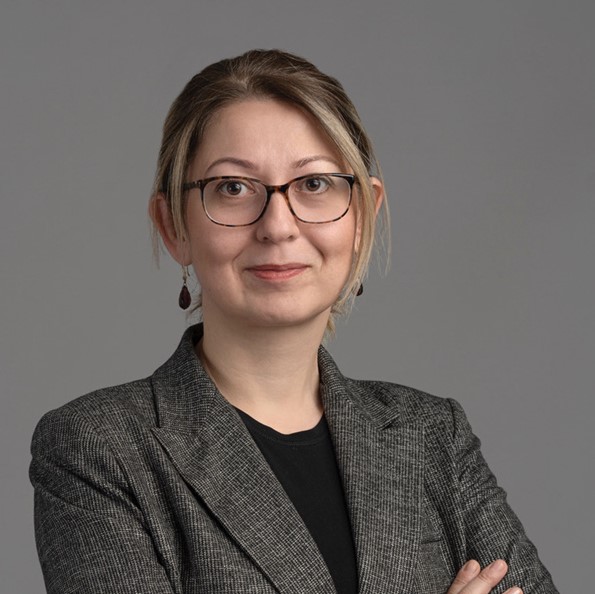 | Gunes Karabulut Kurt Department of Electrical Engineering, Polytechnique Montréal Gunes Karabulut Kurt received the B.S. degree with high honors in electronics and electrical engineering from the Bogazici University, Istanbul, Turkey, in 2000 and the M.A.Sc. and the Ph.D. degrees in electrical engineering from the University of Ottawa, ON, Canada, in 2002 and 2006, respectively. From 2000 to 2005, she was a Research Assistant with the CASP Group, University of Ottawa. Between 2005 and 2006, she was with TenXc Wireless, Canada. From 2006 to 2008, Dr. Karabulut Kurt was with Edgewater Computer Systems Inc., Canada. From 2008 to 2010, she was with Turkcell Research and Development Applied Research and Technology, Istanbul. Between 2010 and 2021, she was with Istanbul Technical University. She is currently an Associate Professor of Electrical Engineering at Polytechnique Montréal, Montreal, QC, Canada. She is a Marie Curie Fellow and has received the Turkish Academy of Sciences Outstanding Young Scientist (TÜBA-GEBIP) Award in 2019. In addition, she is an adjunct research professor at Carleton University. She is also currently serving as an Associate Technical Editor (ATE) of the IEEE Communications Magazine and a member of the IEEE WCNC Steering Board. Her current research interests include space information networks, satellite networking, wireless network coding, wireless security, space security, and wireless testbeds. She is the founding chair of the IEEE Special interest group entitled “Satellite Mega-constellations: Communications and Networking. “Together with her research team, Dr. Kurt has been the author of 91 peer-reviewed journal papers, 24 granted/pending patents, 9 book chapters, and more than 190 conference papers. She has supervised 6 PhD theses and 22 MSc theses. She was selected to be a finalist in the 2017 NI Engineering Impact Awards Finalist in RF and Mobile Communications Category with her work on waveform design for 5G. At Polytechnique Montréal, she plans to expand the relevant activities. Specifically, she has the potential to conduct high impact research on the architectural design of conceptual 6G networks, founded upon her recent publications where she and her co-authors have thoroughly discussed and defined a vision for the networks of 2040, along with additional networking components, including altitude platform station (HAPS) systems. Dr. Karabulut Kurt’s understanding of the developments in complementary research directions in wireless networks has provided her insights into possible designs and threats that can be encountered in 6G networks, and she will make further contributions to this field in the near future.” - Halim Yanikomeroglu, Professor, Department of Systems and Computer Engineering, Carleton University, Canada |
 | Lei Lei University of Guelph, Canada Lei Lei is currently an associate professor with the School of Engineering at the University of Guelph, Canada, where she is leading the Deep INtelligence (DeepIN) Laboratory. She received her PhD degree from Beijing University of Posts and Telecommunications (BUPT) in 2006. Her research is focused on applying artificial intelligence and machine learning methodologies to wireless communications, mobile cloud/edge computing, and Internet-of-Things (IoT) systems such as smart grid and autonomous vehicles. Prof. Lei has published more than hundred research papers and received 3 best paper awards in her field. A few of her publications became highly cited papers. She has acquired solid research and mentoring experiences by working at universities in China, Australia, and Canada. She was a senior engineer on the research and standardization of the wireless technologies at China Mobile Research Institute (CMRI). She received the NSERC Discovery Grant, NSFC Grant, and NSFC-Youth Grant. She is an editor for Peer-to-Peer Networking and Applications journal, Transactions on Emerging Telecommunications Technologies (ETT) journal, and Intelligence & Robotics journal, as well as serving on several technical program committees including IEEE CCECE 2021, IEEE VTC Fall 2016, ICT 2016, ICNC 2016/2015. Also, she was the Secretary of the IEEE Communication Society Asia-Pacific Region Chapters Coordination Committee from 2015 to 2017, and the WG3 vice-Chair of Wireless World Research Forum (WWRF) from 2009 to 2011. “Lei has made significant contributions to the field of performance evaluation and optimization in wireless networking, edge computing, and Internet of Things (IoT) control with highly cited papers and remarkable impacts on standardization. Especially, she was among the first researchers addressing network-controlled Device-to-Device Communications and deep reinforcement learning in IoT with edge computing. Her 16 years’ research experiences on cutting-edge areas and services have established her as a female research star in her field. “ - Lajos Hanzo, Chair of Telecommunications, ECS, Univ. of Southampton, UK |
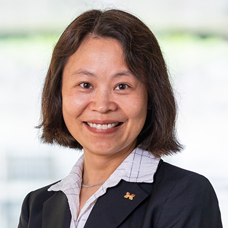 | Mingyan Liu Peter and Evelyn Fuss Chair of Electrical and Computer Engineering, Professor of Electrical Engineering and Computer Science. Main research interests: resource allocation, sequential decision theory, game theory, incentive design, cyber risk quantification. Mingyan Liu received her Ph.D degree in Electrical Engineering from the University of Maryland, College Park, in 2000, and has been with the University of Michigan ever since. Her research interests are in optimal resource allocation, sequential decision theory, incentive design, and performance modeling and analysis, within the context of large-scale networked systems. Her most recent research activities involve cyber risk quantification and designing cybersecurity incentive mechanisms using large-scale Internet measurement data and machine learning techniques. Technologies she developed in this space have been successfully transitioned. In 2014 she co-founded a start-up, QuadMetrics, Inc., commercializing predictive data analytics she developed for cyber risk quantification that resulted in the first global enterprise cybersecurity ratings system; it was acquired by the analytics software company Fair Isaac (FICO) in 2016. She is the recipient of the NSF CAREER Award (2002), the DHS Crossing the Valley of Death PI Excellence Award (2016), and several best paper awards. Her awards from the University of Michigan include the Elizabeth C. Crosby Research Award (2003, 2014), the College of Engineering Excellence in Education (2015) and Excellence in Service (2017) awards, and the Distinguished University Innovator Award (2018). She served on the editorial boards of IEEE/ACM Transactions on Networking, IEEE Transactions on Mobile Computing, and ACM Transactions on Sensor Networks. She is a Fellow of the IEEE and a member of the ACM. “Prof Liu has done seminal work on optimal resource allocation, sequential decision theory, incentive design, and performance modeling and analysis, all within the context of communication networks. Her work has received numerous citations and awards, including a 2002 NSF CAREER Award, the University of Michigan Elizabeth C. Crosby Research Award in 2003 and 2014, the 2010 EECS Department Outstanding Achievement Award, the 2015 College of Engineering Excellence in Education Award, the 2017 College of Engineering Excellence in Service Award and the 2018 Distinguished University Innovator Award. She also has received a number of Best Paper Awards, including one at the IEEE/ACM International Conference on Information Processing in Sensor Networks (IPSN) in 2012 and one at the IEEE/ACM International Conference on Data Science and Advanced Analytics (DSAA) in 2014. In addition, Prof Liu is an exemplary leader and the department chair at the University of Michigan where she has spearheaded excellent initiatives in support of diversity and inclusion. ” - Tara Javidi, Jacobs Family Scholar, HDSI Fellow, and Professor, Electrical and Computer Engineering and Halicioglu Data Science Institute, University of California, San Diego, USA |
 | Valeria Loscri Inria Lille – Nord Europe Bio: Valeria Loscri is a permanent research scientist at Inria Lille – Nord Europe since October 2013. From December 2006 to September 2013, she was research fellow in the TITAN Lab at the University of Calabria, Italy. She received her M.Sc. and Ph.D degrees in computer science in 2003 and 2007, respectively, from the University of Calabria and her HDR (Habilitation à diriger des recherches) in 2018 from the Université de Lille (France). Her prominent research interests focus on emerging technologies for new communication paradigms such as Visible Light Communication (VLC), reconfigurable Intelligent (Meta)Surfaces (RIM) based systems and cyber security in wireless communication systems. She has been involved in several European Projects (H2020 CyberSANE, FP7 EU VITAL) and national projects (ASTRID DEPOSIA). She is on the editorial board of IEEE COMST, Elsevier ComNet, ComCom, JNCA, IEEE Transaction on NanoBioscience. She serves on several technical program committees as INFOCOM, PerCom, ICC, Globecom, WCNC. She has been symposium chair of Globecom and general chair of ACM NanoCom. Since 2019, she is Scientific International Delegate for Inria Lille – Nord Europe. “Significant contributions in cutting edge domains for wireless communication systems with original and multi-disciplinary approaches. In particular, Dr. Valeria Loscri has been making significant contributions on software defined approaches for self-organizing wireless systems implementing different communication technologies as Visible Light Communication (VLC), integration of Reconfigurable Intelligent Surfaces to implement the Software Reprogrammable Environment concept. Her approaches are based on theoretical approaches and validated by the means of test-bed realizations. ” - Abderrahim Benslimane, Professor of Computer Science, Computer Science and Engineering, Avignon University, France |
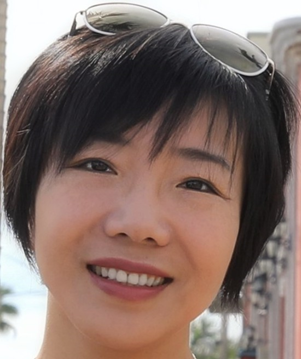 | Yuanqiu Luo Futurewei Technologies, USA Yuanqiu Luo is a Director of Optical Access Standards in the Standardization & Industry Department of Futurewei Technologies, USA. Before joining Futurewei, she was with NEC Laboratories America, Princeton, NJ. She received the Ph.D. degree in electrical engineering from the New Jersey Institute of Technology, Newark. Dr. Luo has been heavily involved in the areas of optical access networks for more than 15 years. She is the Chief Editor of IEEE standards 802.3cp (Highspeed BiDi). She was a Clause Editor of IEEE standards 802.1AS (time synchronization). She is an Editor of ITU standards G.987.3 (XG-PON), G.988 (OMCI), G.989.2 (NG-PON2), G.9802 (multiwave PON), G.9803 (Radio over fiber), G.9804.2 (50G-PON), G.9807.1(XGS-PON), and G.Sup66 (PON for 5G fronthaul). As an active member of IEEE and ITU meetings, Dr. Luo has made more than 200 technical contributions to drive network communications technologies as international standards. Her major projects include the first XG-PON trial, PON as wireless xhaul, the first NG-PON2 system and trials with Asian and European operators, PON for 5G transport, and 50G highspeed optical access system. Most project prototypes are commercialized as products. Dr. Luo is a Senior Member of IEEE. She has authored more than 60 publications. She holds over 30 US patents. She has been teaching a Short Course “Technologies and Applications for Passive Optical Networks” at OFC since 2018. Dr. Luo was an Associate Editor of IEEE Communications Surveys and Tutorials (COMST). She is currently a Technical Editor of IEEE Wireless Communications (WCM) and a Member of the Editorial Board of the Springer Photonic Network Communications Journal. She is a member of the IEEE ComSoc Educational Services Board (ESB). She received the Best Paper Award from IEEE & OSA Journal of Lightwave Technology in 2013. She was a two-time recipient of the IEEE Standards Award (both 2011 and 2021). “A huge set of Dr. Luo’s solid contributions reside in the international standards of highspeed fiber optic access. Dr. Luo is the lead editor of ITU Recommendations G.987.3, G.989.2, G.9804.2, and the chief editor of IEEE Standards 802.3cp. These standards specify 10Gb/s, 40Gb/s, 50Gb/s passive optical network systems, and up to 50Gb/s point to point fiber access systems, respectively. Global top operators such as Verizon, Vodafone, Telefonica, NTT, China Telecom, and China Mobile are operating their networks by following these standards. The standards she developed have made a successful market worth multi-billion US dollars. The product deployment covers countries in North America, Asia, Europe, Middle East, South America, and Africa. Her work enables highspeed access to more than 500 million people worldwide. She won the IEEE Standards Award in 2011 and 2021. Dr. Luo publishes more than 50 research papers in leading journals and conferences. She received the Best Paper Award from IEEE & OSA Journal of Lightwave Technology for her paper on the world’s first 40G-PON system prototype. She serves the community as IEEE ComSoc Educational Services Board member, Technical Editor of IEEE Wireless Communications Magazine (WCM), and Member of the Editorial Board for the Springer Photonic Network Communications Journal. She returns to the community by serving various conferences, delivering talks at workshops/forums, teaching short courses, organizing industry panels, reviewing papers, and mentoring Ph.D. students. ” - Nirwan Ansari, Distinguished Professor, Electrical and Computer Engineering, New Jersey Institute of Technology, USA |
 | Janise McNair Associate Professor, Department of Electrical & Computer Engineering, University of Florida Janise McNair is an associate professor in the department of electrical & computer engineering at the University of Florida. She earned her Ph.D. from the Georgia Institute of Technology. Dr. McNair leads the Wireless and Mobile (WAM) Systems Laboratory, conducting systems research on next generation networks including beyond 5G, Internet of Things, Smart Grid and Small Satellites, specifically focusing on software defined network management, cyber security, and medium access control. She is also on the leadership boards of the Nelms Institute for the Connected World and the NSF I/UCRC Center for Space, High-performance, and Resilient Computing (SHREC). In these technology areas, she has published in IEEE publications; and she has edited a book and obtained a patent on ad hoc networks. She is an active member of IEEE (Senior Member) and ACM, and has served on many technical program committees (distinguished TPC member of INFOCOM); on several IEEE conference organizing committees (INFOCOM, SmartGridComm, TridentComm), journal steering committee (IEEE Transactions on Mobile Computing) and editorial boards (IEEE, Springer, Elsevier and Nature Engineering). Janise has contributed her expertise as a member of several government think tank groups, including the DARPA Computer Science Study Group, and the Intelligence, Science and Technology Group of the National Academy of Sciences, Engineering and Medicine. “Janise has been at the forefront of “next G” cellular research for many years. Her work helped to usher in the multimedia services of 3G and the heterogeneous networks of 4G. Currently, she is helping to usher in multi-radio access technology (RAT) integration in 5G networks. She is leveraging her work in software-defined networks to enable distributed control of heterogeneous wireless environments. She is great at research team building and is especially talented when it comes to pulling in people with multiple perspectives from different areas or disciplines. Janise is tackling new and novel challenges with each new project to push advances in networking to systems development and applications, such as agriculture, construction, and power systems. Her work is respected in academic, industry and government circles. She was recently invited to serve on a panel with the US FCC Commissioner to discuss the impact 5G will have on the state of Florida and the US; she was in the 2008 cohort of the DARPA Computer Science Study group; and currently serves on the Intelligence, Science and Technology Group of the National Academy of Sciences, Engineering and Medicine.” - Wenye Wang, Professor, Electrical and Computer Engineering, North Carolina State University, USA |
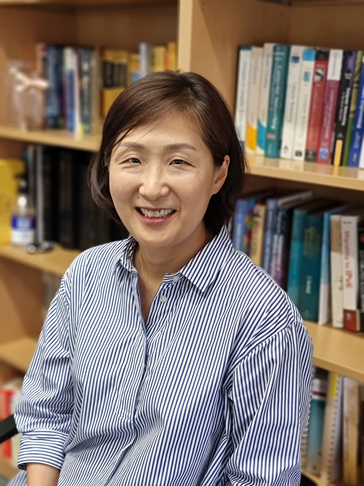 | Sue Moon KAIST, Korea Sue Moon is a professor in the School of Computing at KAIST (Korea Advanced Institute of Science and Technology). After her PhD on Internet performance measurement and analysis, she joined Sprint ATL (Advanced Technology Labs) as a Principal Member of Technical Staff and played a key role in deployment and operation of IPMon project, that was the first monitoring system with GPS clock accuracy. She joined KAIST and expanded her research to online social network analysis and high-speed networking systems. Her 2010 WWW paper “What is Twitter, a social network or news media?” was the first and last to crawl and collect the entire Twitter social network, then about 44 million users, and still its network data is used in many graph evaluations. Her recent topics include datacenter networking and reusable network stacks. She won best paper awards at ACM SIGCOMM IMC 2007 and EuroSys 2015. She has served on many technical program committees and served as technical program chair for WWW 2013 and general chair for ACM SIGCOMM CoNEXT 2017, just to name a few. In 2021, she was inducted as a full member to the National Academy of Engineering of Korea. “Sue Moon is a prominent researcher in the Computer Networking community. Her research made an impact on the industry. She has served as TPC chair for many renowned conferences; for example, WWW, APSys, ACM Multimedia, as well as in the IEEE Internet Award Committee. She won the 2012 Knowledge Creation Award by the Ministry of Education, Science, and Technology, Korea. the 2012 Young Engineer’s Award by the National Academy of Engineering of Korea, 2009 Amore Pacific Award for Outstanding Women in the Sciences, and several awards for excellence at KAIST.” - Sukumal Kitisin, Vice Dean in Information, Kasetsart University, Thailand |
 | Maria Papadopouli Professor of Computer Science, University of Crete and FORTH Short bio: Maria Papadopouli (Ph.D. Columbia University, October 2002) is a Professor in the Department of Computer Science at the University of Crete, a Research Associate at the Institute of Computer Science, FORTH, and a Fulbright Scholar. She has been a visiting Professor at the Computer Science and Artificial Intelligence Laboratory (CSAIL) at the Massachusetts Institute of Technology (MIT) as well as at the School of Electrical Engineering, KTH Royal Institute of Technology in Stockholm. From July 2002 until June 2006, she was a tenure-track Assistant Professor at the University of North Carolina at Chapel Hill (UNC) (on leave from July 2004 until June 2006). She has co-authored a monograph on Peer-to-Peer Computing for Mobile Networks: Information Discovery and Dissemination (Springer Eds. 2009) and has been the co-chair of several international workshops and conferences in the area of wireless networking and mobile peer-to-peer computing. Her research has been supported by several awards (e.g., IBM Faculty Awards, Google Faculty Award, Comcast Innovation Fund) and competitive national, EU, and international grants (e.g., by the Hellenic Foundation for Research & Innovation, EU Horizon2020 Marie Curie Fellowships, Marie Curie RISE, Fondation Santé). “Maria is an expert in network analysis and modelling, developing and applying powerful statistical analysis and machine-learning methods to analyze measurements from real-world complex networks, such as Internet, the Internet of Things, and biological networks. Her work in mobile computing had introduced mobile peer-to-peer computing, a new paradigm in mobile networks, as part of her Ph.D. thesis under my supervision. She was one of the first researchers to start analyzing and modeling large-scale real-world wireless networks in 2003. Her on-going research focuses on the identification of the fundamental modules of computation in the visual cortex and the analysis of neural-circuit function during learning. She is particularly interested in understanding how information about the visual stimulus is represented, how these circuits malfunction in normal ageing and in several disease states, and the identification of functional network patterns in visual cortex and relating these to the stimulus processing properties of the cortex.” - Henning Schulzrinne, Professor, Dept. of Computer Science and Dept. of Electrical Engineering, Columbia University, USA |
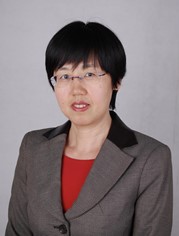 | Zheng Yan Professor at the Xidian University, School of Cyber Engineering, China, and a Finnish Academy Fellow, Aalto University, Finland Main research interests: cyber trust, security and privacy. Zheng Yan is a HuaShan distinguished professor at the School of Cyber Engineering, Xidian University, China and a Finnish Academy Fellow at the Aalto University, Finland. She received the Doctor of Science in Technology in 2007 from the Helsinki University of Technology (i.e., current Aalto University), Finland. Before joining academia in 2011, she was a senior researcher at the Nokia Research Center, Helsinki, Finland, since 2000. Her research interests are in trust, security, privacy, and security-related data analytics, focusing on autonomous and privacy-enhanced trust management for securing networking and communications. Her research leads to 300+ peer reviewed scientific articles published in highly reputable journals and conferences, two solely authored books and nine conference proceedings. She is an inventor of 53 granted patents and 50 PCT patents, 87 of them have been adopted in industry. Some of her patented techniques have been referred by international standards and widely used in practice. She is an area or associate editor of Information Fusion, IEEE Network Magazine, IEEE Internet of Things Journal, Information Sciences, and JNCA, etc. She served as a general chair or program chair for over 30 international conferences including IEEE TrustCom2015, NSS/ICA3PP/IEEE CIT 2017, IEEE Blockchain2018, and IFIP Networking 2021. She is a founding steering committee co-chair of IEEE Blockchain conference. She received many awards and honors in recent years, including Distinguished Inventor Award of Nokia (2020) for her significant technology contributions, Aalto ELEC Impact Award (2020) for patent contributions to Finnish society, the 2017 Best Journal Paper Award issued by IEEE Communication Society Technical Committee on Big Data, the Best Paper Award of SpaCCS2019, Elsevier 2020 highly cited Chinese researcher, more than ten IEEE Outstanding/Distinguished Leadership/Service Awards (2010-2019), and the Outstanding Associate Editor of 2017 and 2018 for IEEE Access Journal. She has offered more than 20 keynotes and invited talks in international conferences. She is a Fellow of IET and a senior member of IEEE. “Professor Zheng Yan is an exceptionally productive and innovative researcher and her works have had great practical and societal impact. In past 20 years, She has contributed about 70 patens or PCT patents to Nokia, including 30 of her independent inventions. Some of the patents such as active ticketing and DVB-CPCM have been widely used or incorporated into standards. For her outstanding contribution to Nokia, she was awarded the Nokia Distinguished Inventor Award in 2020.” - Riku Jäntti, Professor, Dept. Communications and Networking, Aalto University, Finland |



